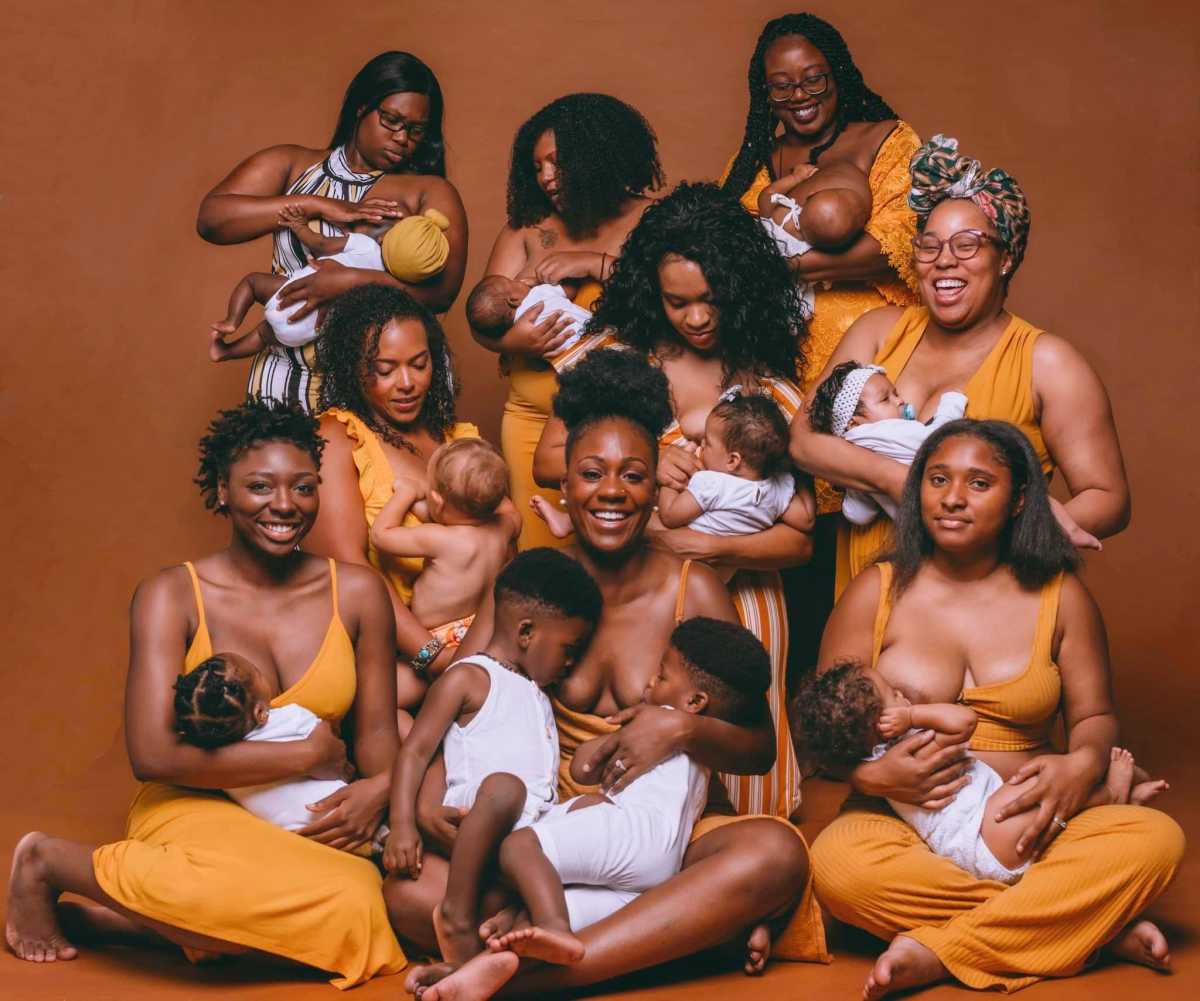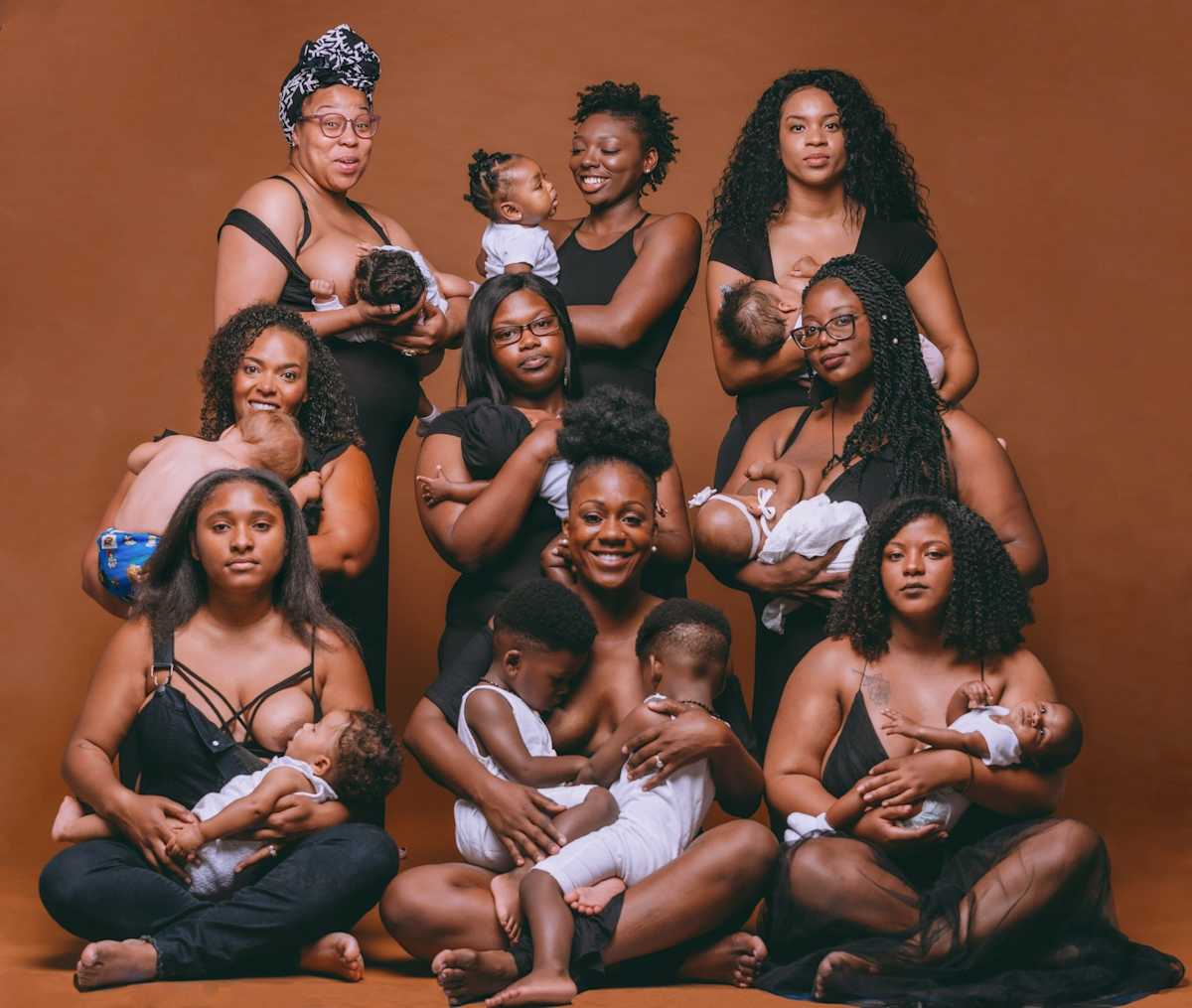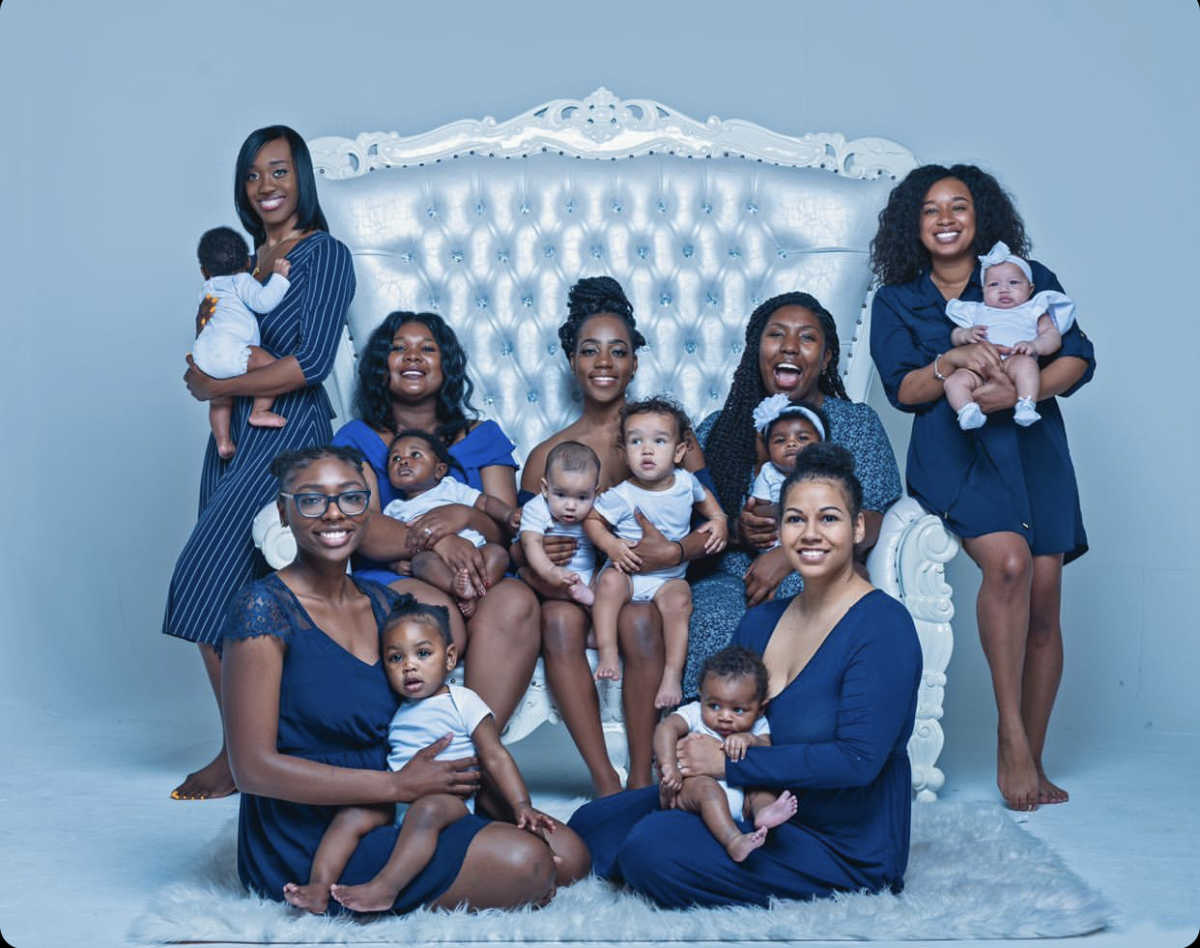In August, a study revealed a troubling disparity in healthcare: Black newborns cared for by white physicians were three times more likely to die in the hospital compared to white newborns. To address this issue, photographers David and Jewell Butler from Carma Collective Photography in San Diego, California, captured a poignant series of photographs showing Black mothers breastfeeding. These images serve as a powerful reminder that not all parents receive equal support when it comes to their children’s care.


Carma Collective Photography
Speaking with CafeMom, David and Jewell say that the project came about after the death of their son Zion in 2018.
David says that after Zion’s passing, he and his wife wanted to do “everything we can to share and highlight the disparities Black men, women, and children face in our health care system.”


Carma Collective Photography
That is when they came up with the idea of using their art as a tool for advocacy.
In total, the project started with photographs taken of several different mothers as they nursed and held their little ones in August 2019, using volunteers from the San Diego area. This year they featured a new set of moms in honor of Black Breastfeeding Week, which ran from August 25 to 31. They shared the photos on their Instagram account in honor of the occasion.
“They are all amazing, powerful, and beautiful women who know deeply each and every struggle that we speak on,” Jewell says. “We are grateful to them for coming out and participating in these projects to share their breastfeeding journeys with the world.”
The couple says that they chose to use mothers to share their message because for many Black families, the struggle starts “from the first day of pregnancy.”
“I want to explain the importance of David and I’s intentions with the #melaninprojects we have been working on. We as Black families struggle. We struggle to live, to survive and to thrive. For so many reasons,” she notes.
“Our communities are underserved when it comes to resources and knowledge about the high risks in pregnancy, proper stats on breastfeeding, difficult birth stories, postpartum subjects, the higher risk of Sudden Infant Death Syndrome and many more obstacles as Black families,” she continues.
These problems don’t just affect Black mothers.
In light of the recent shootings of fathers George Floyd and Jacob Blake, it’s clear that Black fathers also face their own share of sometimes fatal challenges that need attention.
The challenges start “from pregnancy to birth to their life on this earth,” Jewell says. “These projects hold extreme importance to us both. We have been through so much in each area mentioned above. From lack of resources, lack of proper health care, traumatic birth stories of all three of our children, [and] losing a child.
“Zion, our angel baby, has inspired so much in us,” she adds.


Carma Collective Photography
That is why they hope their photos will raise awareness about these disparities.
In that August study about Black newborn mortality rates, the academic journal Proceedings of the National Academy of Science of the United States of America studied 1.8 million hospital births in Florida between 1992 and 2015 and found that the numbers of Black newborn death decreased when they were treated by Black physicians. That was especially true in “more challenging births” and overall “in hospitals that deliver more Black babies.”
Although there was no significant improvement in maternal mortality when mothers shared the same race as their physicians, the study found that often there is a huge disparity between the number of white physicians treating Black patients who are giving birth vs. the number of physicians who shared their race.
“Recent work has emphasized the benefits of patient–physician concordance on clinical care outcomes for underrepresented minorities, arguing it can ameliorate outgroup biases, boost communication, and increase trust,” the study read.
“We push forward. Every single day,” Jewell tells CafeMom. “We do these projects to bring awareness to the disparities in the Black community. We are here to continue to spread the message that we need more representation. We need more resources.”





